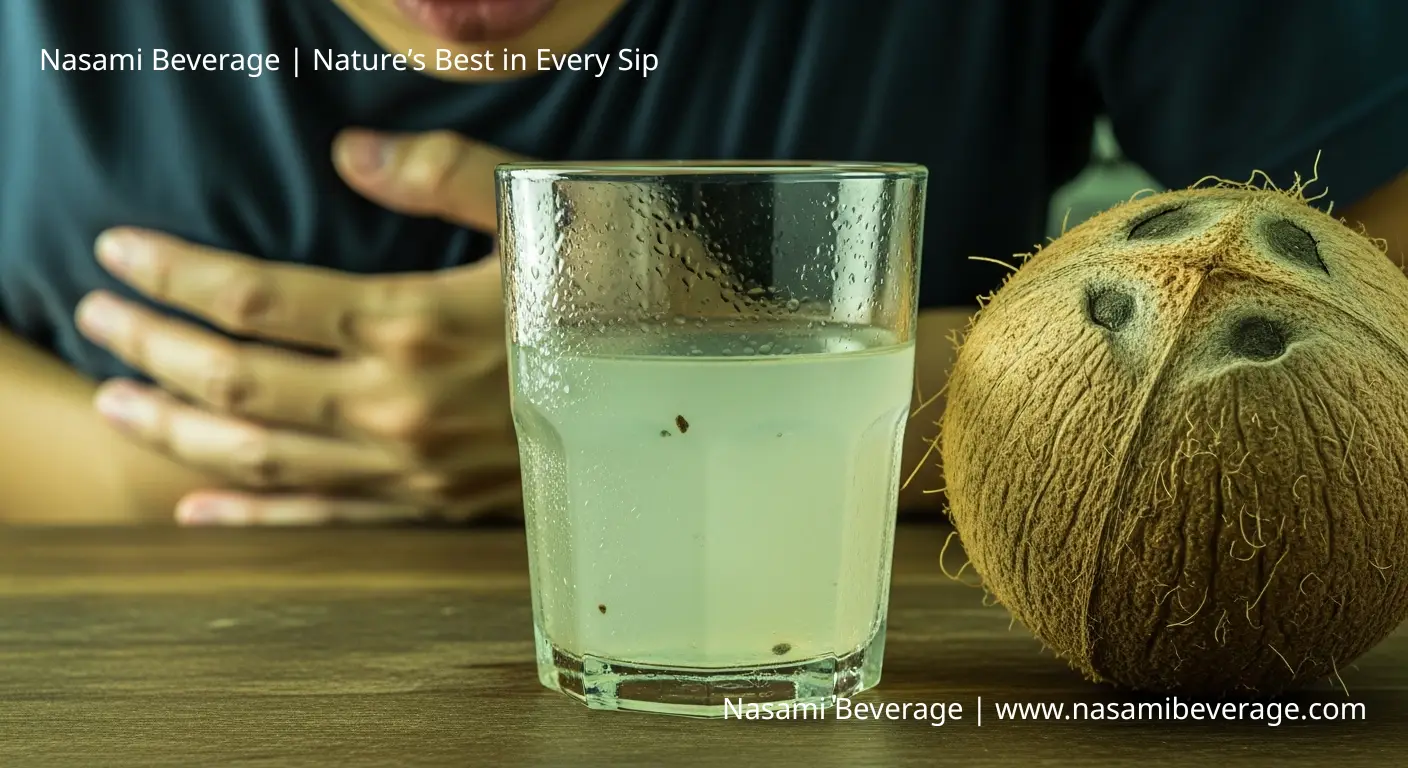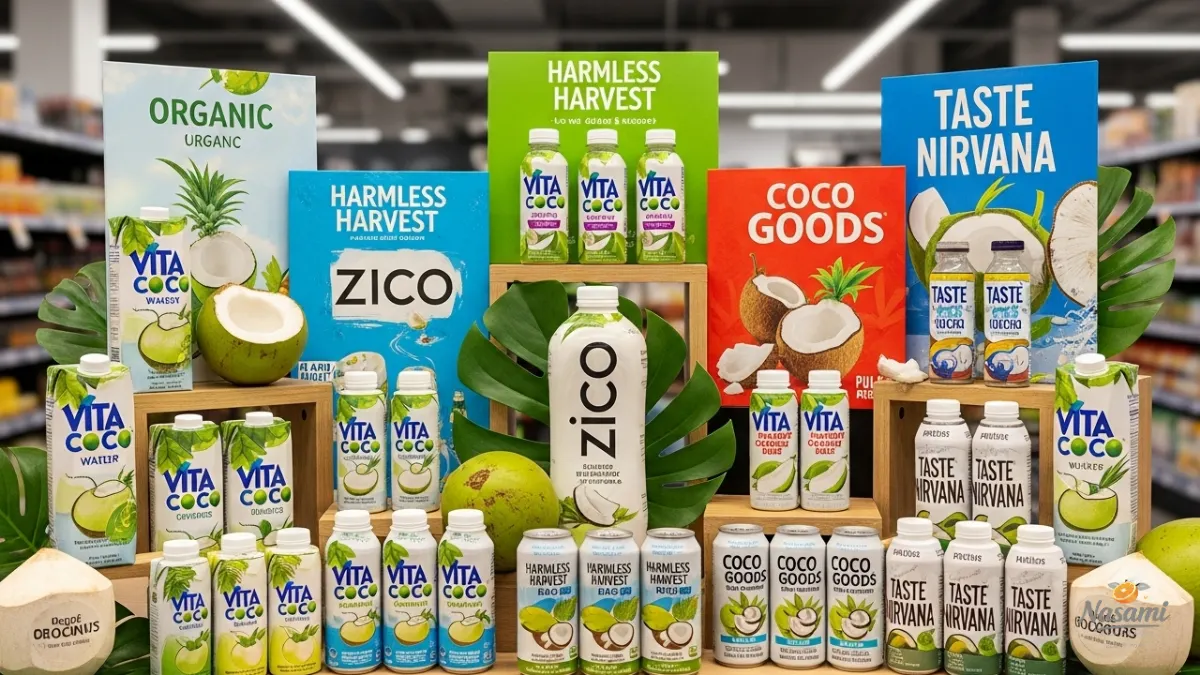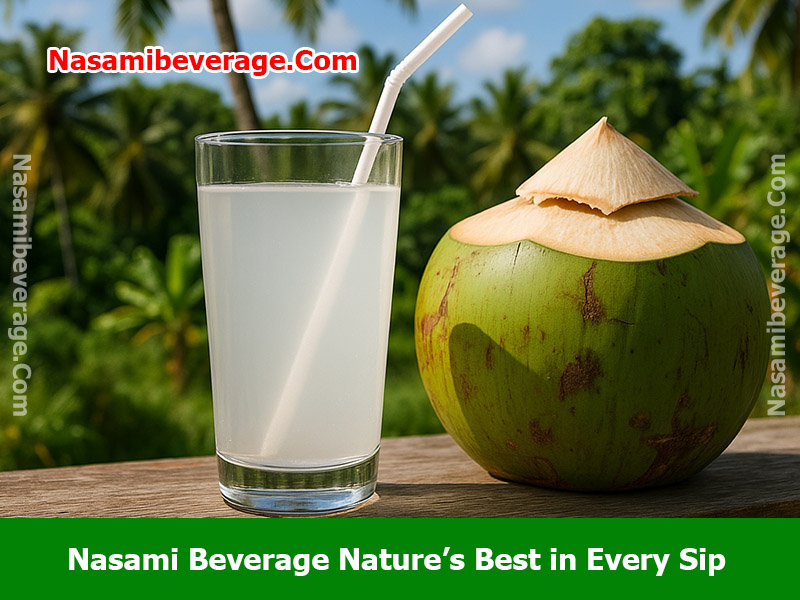In the quest for optimal hydration and peak athletic performance, two beverages frequently enter the ring: the natural allure of coconut water and the scientifically formulated power of Gatorade. Both promise to replenish fluids and electrolytes, but their compositions, benefits, and ideal use cases differ significantly. This article dives deep into the “coconut water vs gatorade” debate, exploring their nutritional profiles, and helping you determine the best hydration partner for your lifestyle and activities.
Disclaimer: This information is for educational purposes only and does not replace professional medical or veterinary advice. Always consult a qualified professional before making decisions related to your health or your pet’s health.
Introduction: Navigating the Hydration Hype
The global sports drink market is experiencing significant growth, driven by an increasingly health-conscious society seeking effective rehydration solutions.
Amidst this boom, coconut water has emerged as a popular natural alternative, challenging the long-standing dominance of engineered sports drinks like Gatorade.
Understanding the core differences between these two can empower you to make informed hydration choices, whether you’re an endurance athlete, a casual exerciser, or simply looking for healthy sports drink options for daily hydration.
Understanding the Fundamentals: What Exactly Are They?
Coconut Water: Nature’s Electrolyte Drink
Sourced from the clear liquid inside young, green coconuts, pure coconut water is often hailed as “nature’s sports drink.” It is naturally rich in various electrolytes, most notably potassium, but also contains magnesium, calcium, and smaller amounts of sodium and phosphorus.
This natural beverage also provides natural sugars and is relatively low in calories, making it a natural hydration solution for many. Beyond electrolytes, what is coconut juice good for extends to its content of antioxidants and other micronutrients, contributing to its growing appeal among health-conscious individuals.
When considering if are coconut water good for you, its natural composition without artificial additives is a key factor.
Gatorade: The Engineered Sports Fuel
Gatorade was specifically formulated in 1965 to help athletes at the University of Florida replenish fluids and electrolytes lost during intense exercise.
Its composition is engineered to optimize rapid rehydration and provide quick energy, primarily through added sugars like dextrose and sucrose.
The main electrolytes in Gatorade include sodium and potassium, balanced to aid in fluid retention and replace those lost in significant sweat.
While effective for its intended purpose, original Gatorade contains artificial colors, flavors, and a higher sugar content than many natural alternatives.
Recognizing consumer concerns about sugar, brands like Gatorade have also introduced variations such as Gatorade G2 (low calorie) and G Zero (no sugar), which often utilize artificial sweeteners.
The Role of Electrolytes: Why They Matter for Hydration
Electrolytes are minerals with an electric charge that are vital for numerous bodily functions. These include balancing the amount of water in your body, regulating blood acidity (pH), supporting nerve and muscle function, and facilitating nutrient transport into cells and waste removal.
Common electrolytes include sodium, potassium, calcium, magnesium, chloride, and phosphate. During physical activity, especially intense or prolonged workouts, the body loses significant amounts of fluids and electrolytes through sweat.
An imbalance in these crucial minerals, or Understanding Electrolyte Balance, can lead to symptoms of dehydration such as confusion, dizziness, fatigue, headaches, and muscle cramps.
Proper fluid replacement and electrolyte balance are essential for athletic performance and overall health.
Nutritional Showdown: A Closer Look
Electrolyte Profile: Who Wins for Which Mineral?
When comparing the electrolyte profiles, distinct differences emerge. Plain coconut water is renowned for its high potassium content, often providing five to ten times more potassium than Gatorade per serving.
For example, 12 fluid ounces of unsweetened coconut water can contain around 594 mg of potassium, while a similar serving of original Gatorade Thirst Quencher provides approximately 46.8 mg.
Conversely, Gatorade is formulated with a higher concentration of sodium, a critical electrolyte lost significantly through sweat, making it effective for significant fluid replacement during intense exercise. A 12 fl oz serving of original Gatorade contains about 166 mg of sodium, compared to approximately 93.6 mg in unsweetened coconut water.
Coconut water also contains a broader natural range of other electrolytes like magnesium and calcium, which Gatorade typically lacks or has in negligible amounts in its original formulation.
Sugar & Carbohydrates: Fuel or Foe?
The sugar content sports drinks is a major point of divergence. Gatorade’s higher sugar content (primarily dextrose and sucrose) is deliberately included to provide rapidly absorbable carbohydrates, serving as a quick energy source for working muscles and aiding in glycogen replenishment during and after intense, prolonged activity.
In contrast, is coconut drink healthy from a sugar perspective largely due to its lower, naturally occurring sugar content. Unsweetened coconut water typically contains around 14.16 grams of sugar per 12 fluid ounces, derived from the fruit itself.
While these natural sugars also provide energy, they are present in smaller quantities, making coconut water a less calorically dense option. The impact of sugar on blood glucose levels and potential energy crashes is an important consideration for many individuals.
Calories and Other Components
Generally, coconut water is lower in calories than original Gatorade. For example, 12 fluid ounces of unsweetened coconut water has approximately 64.8 calories, compared to 82.8 calories in a 12 fl oz serving of original Gatorade Thirst Quencher.
Coconut water also offers small amounts of vitamins, such as Vitamin C. A significant difference lies in the ingredients: coconut water is a natural product, typically free from artificial additives, whereas Gatorade’s various products may contain artificial flavors, colors, and in some versions, artificial sweeteners like sucralose and acesulfame potassium.
When to Choose Which: Matching Your Hydration to Your Activity
For Intense & Prolonged Exercise (e.g., Marathons, Heavy Workouts)
For athletes engaging in high-intensity, prolonged exercise lasting more than 60-90 minutes, Gatorade often holds an advantage.
Its higher sodium content is crucial for replacing significant electrolyte loss through sweat, helping to prevent muscle cramps and maintain fluid balance.
The readily available carbohydrates in Gatorade are designed to provide sustained energy, helping to maintain blood glucose levels and delay fatigue during strenuous activity, and promoting Optimal Post-Workout Recovery.
Professional organizations like the National Athletic Trainers’ Association recommend carbohydrate-electrolyte beverages for fluid replacement during extended exercise to optimize performance.
For Moderate Activity & Daily Hydration (e.g., Yoga, Light Jog, General Thirst)
For moderate exercise, light jogs, or general daily hydration, natural hydration solutions like coconut water can be an excellent choice.
Its naturally occurring electrolytes, particularly its higher potassium content, contribute to overall wellness and gentle rehydration without the higher sugar load or artificial ingredients found in many sports drinks.
Coconut water is suitable for those looking for a lower-calorie, lower-sugar option to replenish fluids after minimal to moderate sweat loss. It aligns well with the goals of health-conscious individuals seeking a low sugar sports drink alternatives.
Situations Where Plain Water is Sufficient
For brief, low-intensity activities (less than an hour) or general thirst throughout the day, plain water remains the best and most recommended choice for hydration.
Water effectively rehydrates the body without adding calories, sugar, or other ingredients that may not be necessary for minimal fluid loss.
Beyond the Basics: Other Considerations
Taste and Palatability
Taste is a significant factor in voluntary fluid intake, influencing adherence to hydration protocols. Gatorade offers a wide range of familiar, often sweet and tangy, flavors designed for broad appeal and to encourage drinking during exercise.
Coconut water, while also having diverse flavor options (some brands adding fruit juices), possesses a unique, often mildly nutty or subtly sweet taste that some find refreshing, while others may find it an acquired taste.
When considering different brands, some consumers might wonder, for instance, is vita coco actually coconut water or how it compares to other varieties. Likewise, for products like is bai coconut water good for you, reviewing the ingredient list for added sugars or artificial components is always recommended.
Cost and Accessibility
Generally, commercially packaged coconut water can be more expensive per ounce than Gatorade, especially when considering bulk purchases of Gatorade powders or mixes.
However, prices vary significantly by brand, location, and product type. Both are widely accessible in supermarkets, convenience stores, and health food stores, though the variety of brands may differ.
For those seeking premium options, researching the best organic coconut water brands might be a consideration.
Sustainability and Environmental Impact
The environmental footprint of these beverages is another point of discussion. Coconut water comes from a natural, renewable resource, though its processing and transportation still carry an environmental cost.
Gatorade, being an industrially produced beverage, involves manufacturing processes and relies heavily on plastic bottle packaging, raising concerns about plastic waste. Consumers increasingly consider the eco-friendly aspects of their hydration choices.
Making Your Informed Choice: A Summary
The “winner” in the coconut water vs. Gatorade debate ultimately depends on individual needs, activity type, intensity, and duration.
For intense, prolonged physical activity with significant sweat loss, Gatorade’s tailored blend of sodium and rapidly available carbohydrates is highly effective for rapid rehydration and sustained energy.
However, for moderate exercise, general wellness, or daily hydration, coconut water offers a natural, lower-sugar alternative with a rich potassium profile, making it a healthier choice for many.
It’s about matching the right Choosing Your Workout Fuel to your specific demands. As a wise saying goes, “As an athlete you’ve got to watch your hydration and your nutrition, and use the right kinds of fuel to help you perform your best.”
Frequently Asked Questions (FAQs)
Is coconut water truly a natural substitute for Gatorade during intense workouts?
While coconut water is a natural source of electrolytes, it typically has significantly less sodium and fewer carbohydrates than original Gatorade.
For intense or prolonged workouts resulting in heavy sweating, Gatorade’s specific formulation of higher sodium and fast-acting sugars is generally more effective for rapid fluid and electrolyte replenishment and sustained energy. Coconut water may not be sufficient for these demanding scenarios, but can be excellent for moderate activities.
Which drink has more sugar, coconut water or Gatorade, and why does it matter?
Original Gatorade typically contains significantly more sugar (added sugars like dextrose and sucrose) than unsweetened coconut water (natural sugars).
This matters because while Gatorade’s sugars provide quick fuel for intense athletic performance, excessive sugar intake outside of strenuous activity can contribute to higher calorie consumption and potential blood glucose spikes.
Coconut water offers a lower, natural sugar content, which may be preferable for general hydration or moderate exercise.
Can I drink coconut water daily, even if I don’t exercise intensely?
Yes, you can generally drink coconut water daily, especially unsweetened varieties, as part of your overall hydration strategy.
It provides natural electrolytes and is relatively low in calories and sugar compared to many other beverages. However, plain water should always be your primary source of daily hydration.
Are there any specific health conditions where one drink is strongly preferred over the other?
Individuals with high blood pressure or those managing sodium intake might prefer coconut water due to its lower sodium content compared to Gatorade.
Conversely, for rapid rehydration during acute illness involving significant fluid loss (like severe vomiting or diarrhea), a medical professional might recommend an oral rehydration solution (ORS) or a sports drink like Gatorade, which offers a more precise balance of sodium and glucose for fluid absorption.
People with diabetes should carefully monitor the sugar content in both, opting for sugar-free versions or water as appropriate. Always consult a healthcare professional for personalized advice.
The choice between coconut water and Gatorade is not about one being universally “better” than the other, but rather about understanding their distinct benefits and aligning them with your personal hydration needs and activity levels.
By considering factors like exercise intensity, nutritional content, and personal health goals, you can hydrate smart and ultimately perform better, ensuring your body receives the optimal fuel and fluid replacement it needs.


